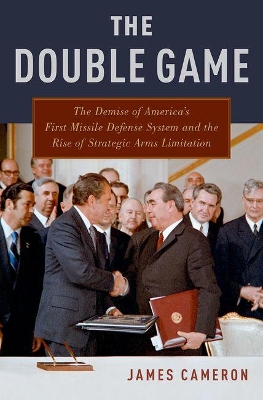How did the United States move from position of nuclear superiority over the Soviet Union at the beginning of the 1960s to a period of arms control based on nuclear parity the doctrine of mutual assured destruction in 1972? Drawing on declassified records of conversations between three presidents and their most trusted advisors, this book provides a new and fascinating answer to this question. John F. Kennedy, Lyndon Johnson, and Richard Nixon struggled to reconcile
their own personal convictions on the nuclear arms race with the very different views of the public and Congress. In doing so they engaged in a double game, hiding their true beliefs behind a facade of strategic language while grappling in private with the complex realities of the nuclear age.
The book shows how Kennedy and Johnson consistently worried about the domestic political costs of their actions, pushing ahead with an anti-ballistic missile (ABM) system for the United States for fear of the domestic political consequences of scrapping both the system and the doctrine of strategic superiority on which it was based. By contrast, the abrupt change in U.S. public and congressional opinion in 1969 forced Nixon to give up America's first ABM and the U.S. lead in offensive ballistic
missiles through agreements with the Soviet Union, despite his conviction that the U.S. needed a nuclear edge over the USSR to maintain the security of the West.
By placing this dynamic at the center of the story, the book provides a completely new overarching interpretation of this pivotal period in the development of U.S. nuclear policy.
- ISBN10 0190459921
- ISBN13 9780190459925
- Publish Date 7 December 2017 (first published 23 November 2017)
- Publish Status Active
- Publish Country US
- Imprint Oxford University Press Inc
- Format Hardcover
- Pages 248
- Language English
